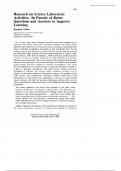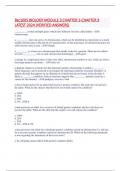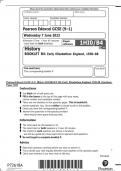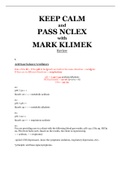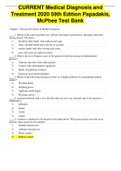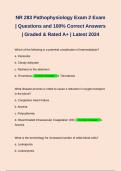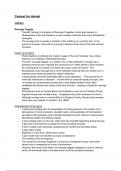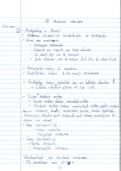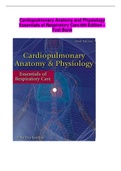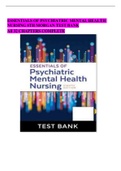Exam (elaborations)
Research on Science Laboratory Activities: In Pursuit of Better Questions and Answers to Improve Learning
- Course
- Institution
Research on Science Laboratory Activities: In Pursuit of Better Questions and Answers to Improve Learning Kenneth Tobin Department of Curriculum & Instruction Florida State University TaHahassee, Florida 32306 For a great many years, laboratory activities have been regarded as an important...
[Show more]
